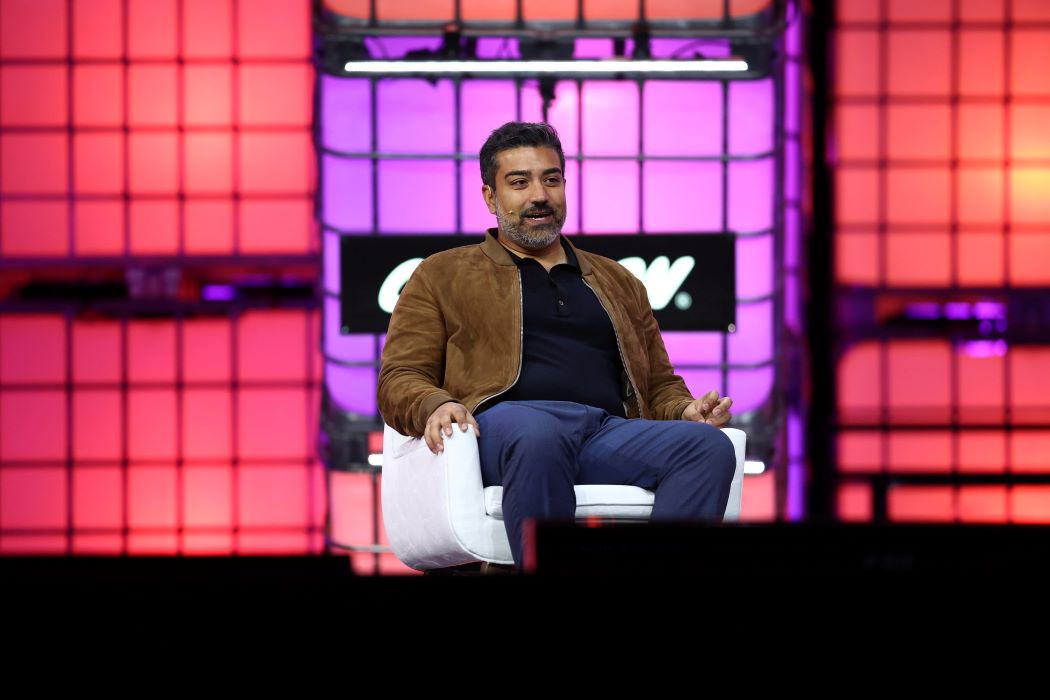With K-Pop ‘in Crisis,’ HYBE Is Focused on Global Expansion Beyond theGenre

With K-Pop ‘in Crisis,’ HYBE Is Focused on Global Expansion Beyond theGenre
How HYBE’s Battle For SM Entertainment Became a South Korean ‘Succession’ Drama
While Bang didn’t say which companies HYBE is targeting for further acquisitions, in a press conference after his speech he noted HYBE’s interest in Latin labels. The company certainly has the resources to buy additional record labels, artist management firms or tech platforms to further fuel its expansion: HYBE had cash and cash equivalents of 903 billion won ($689 million) as of Sept. 30, 2022, the latest date for which data is available. The goal, said Bang, is to achieve scale “that can’t be ignored.”
Even though HYBE dominates K-pop and generated revenue of $1.4 billion in 2022, Bang described his company in biblical terms: He is David, the three major labels are Goliath. Major K-pop companies account for less than 2% of the global music market, he said, while the majors own 67.4%.
Looking around the world, Bang sees “alarming trends,” including K-pop commanding fewer chart positions in 2022 than in the previous year. “In this context, the existence of global K-pop artists without a dominant global entertainment company inevitably leads to concerns about the industry’s ability to be on the lookout for future uncertainties,” he said.
What will it take for HYBE to turn from David into a sustainable Goliath? Bang wants more scale and stronger distribution partners to give K-pop additional bargaining power to negotiate more favorable distribution rates. In that way, he said, HYBE can improve its financial performance “and enable the company and our artists to grow.”
Further entering the U.S. market will require building “a strong network and infrastructure,” Bang said. “Through this, we need to minimize the cost of trial and error caused by situations that are difficult for us to change, or due to our unfamiliarity with the local conditions, and secure an equal level of presence and influence in the mainstream market equivalent to local companies.”
Breaking artists isn’t a matter of “luck or sheer intuition,” the HYBE founder added. Rather, success is the result of a management process that can be systemized and replicated in other markets. HYBE’s multi-label structure demonstrates this approach, Bang said: “It is a system that has been meticulously established based on experience, trial and error, and contemplation to enable the company’s success.”
Additional reporting by Jeyup S. Kwaak
Related News & Content
-

Use wp.media templates to create totally custom modal
Use wp.media templates to create totally custom modal,Following up on this answer I'm trying to determine how to create a modal with completely unique menu items/content than the media modal. If you add a new state you can add a new menu tab and hav... Tags: media modal stackexchange.com WordPress Development Stack Exchange -

Get post by tag
Get post by tag,I want to get several post by tag. So I try to use get_posts() function: <?php $args = array( 'numberposts' => '3', 'post_status' => 'publish', 'tag' => 'travel' ); $ Tags: functions posts query posts stackexchange.com WordPress Development Stack Exchange -

Elementor + ACF: How to insert dynamic JSON-LD formatted code into ACF field without sanitizing the script tag?
Elementor + ACF: How to insert dynamic JSON-LD formatted code into ACF field without sanitizing the script tag?,On a normal website, I am able to add JSON-LD structured data, such as below, into a Elementor HTML widget, in a proper way. However, as soon as I insert JSON-LD format into an ACF field (Textarea)... Tags: advanced custom fields php stackexchange.com WordPress Development Stack Exchange -

Gutenberg InnerBlocks noallowedblocks on parent but allowedblock on Child
Gutenberg InnerBlocks noallowedblocks on parent but allowedblock on Child,This is a continuation of the following post: Custom Gutenberg block with nested InnerBlocks renderAppender not displaying add button I solved one problem but created a different problem. I'm recr... Tags: block editor plugin development stackexchange.com WordPress Development Stack Exchange -

Delay Issue: Using Wget with JSON Endpoint – Need Help Understanding Headers
Delay Issue: Using Wget with JSON Endpoint – Need Help Understanding Headers,On a WooCommerce website, I have a REST endpoint created with register_rest_route that returns a JSON response. To perform a routine with a certain frequency and urgency, I have added this instruct... Tags: rest api stackexchange.com WordPress Development Stack Exchange -

How do I change top header background color
How do I change top header background color,Please refer to website: https://virginiafrank.com I cannot get the top header background color (or phone numbers) to change color. I would prefer the background gold and text black. I can't make t... Tags: headers stackexchange.com WordPress Development Stack Exchange -

How to display the_tags() as plain text
How to display the_tags() as plain text,the_tags by default is displaying as URL. I need to display it as plain text to insert inside HTML attribute. <?php $tag = the_tags(''); ?> <div class="image-portfolio" data-section... Tags: stackexchange.com tags WordPress Development Stack Exchange -

Give to site admin the option to "skip confirmation email" when adding new user
Give to site admin the option to "skip confirmation email" when adding new user,in wordpress multisite when we give to site admin the option to add new users, site admin dont have the "checkbox" to add the new user without sending the user email with link activation (see the Tags: email verification multisite stackexchange.com users WordPress Development Stack Exchange -
Facing Hamas and Tehran, Israel is left with only vengeful madness | Opinion
Facing Hamas and Tehran, Israel is left with only vengeful madness | Opinion,Despite the Terrible Disaster on October 7, and the Failures It Exposed, Israel Is Still Convinced That the Image of the Mad Man Will Ensure Its Security -

Carol Kirkwood stuns in figure-hugging dress amid BBC Breakfast technical chaos
Carol Kirkwood stuns in figure-hugging dress amid BBC Breakfast technical chaos,CAROL Kirkwood stunned in a figure-hugging dress amid a technical blunder. BBC Breakfast was flung into chaos this morning after a string of sound issues. However Carol, 61, was all smiles as she p… Tags: BBC BBC Breakfast BBC ONE Carol Kirkwood mirror.co.uk The Scottish Sun TV News TV UK daytime TV -

Families ‘to sue prison’ where loud inmates ‘terrorise kids’ with screaming
Families 'to sue prison' where loud inmates 'terrorise kids' with screaming,Residents living next door to a new prison who say their kids have to sleep wearing headphones and some leave during weekends due to the racket are threatening to sue the prison service Tags: mirror.co.uk Neighbours from hell prisons Scottish government The Mirror -

Doctor Strange’s Secret Wars Role May Be More Important Than You Thought – Looper
Doctor Strange's Secret Wars Role May Be More Important Than You Thought - Looper,According to entertainment leaker Alex Perez, Doctor Strange will find himself confronting his inner struggles as he headlines "Avengers: Secret Wars." Tags: Fiction Looper looper.com Marvel Cinematic Universe Science Star Wars The Universal Monsters franchise -

I’ll Show You The Inside Of 12 Disney Homes, All You Have To Do Is Tell Me Which Movie They’re From
I'll Show You The Inside Of 12 Disney Homes, All You Have To Do Is Tell Me Which Movie They're From,I believe in you. Tags: buzzfeed.com evergreen Keycat Keytags Movies Trivia trivia quiz -

Here’s to Our Favorite Tortured Poets
Here’s to Our Favorite Tortured Poets,Taylor Swift and her various modern idiots join a long line of pop-culture poets sanctimoniously performing soliloquies, from real-life figures (‘Shakespeare in Love’) to the fictional but equally tortured (‘Dead Poets Society’). Tags: Keycat Keytags vulture.com -

‘What Jennifer Did’: Netflix doc explores shocking Ont. murder-for-hire case
'What Jennifer Did': Netflix doc explores shocking Ont. murder-for-hire case,Most of Jennifer Pan's entire life was made up of lies. When her parents began to catch on, she decided to bring in hired hitmen. Tags: Crime Entertainment Global News globalnews.ca Jennifer Pan jennifer pan now Trending What jennifer did what jennifer did netflix -

What’s behind the lack of enthusiasm for this year’s music festivals?
What's behind the lack of enthusiasm for this year's music festivals?,The public sentiment about this year's crop of music festivals is an overwhelming "meh." There are good reasons for this. Tags: Coachella Entertainment glastonbury Global News globalnews.ca lollapalooza Music festivals News -

Alberta proposes changes to clear path for tech firms to use ‘software engineer’ title
Alberta proposes changes to clear path for tech firms to use ‘software engineer’ title,Alberta has tabled changes designed to enable technology companies in the province to use the ‘software engineer’ title to attract and retain skilled talent. Tags: Alberta apega ben bergen benevity betakit betakit.com brett colvin Canadian Startup News cci council of canadian innovators goodlawyer Government of Alberta Govt Isabelle Kirkwood jobber platform calgary software engineer thin air labs -

Dapper Labs, Nesto, Certn, top Deloitte’s 2023 Technology Fast 50 list
Dapper Labs, Nesto, Certn, top Deloitte’s 2023 Technology Fast 50 list,FinTech startups made a mark on the list of Canada’s leading technology companies. Tags: ada Alex Riehl and hudson's bay anders mckenzie aquanow betakit betakit.com brim financial Calgary Canadian Startup News canadian startups certn cleantech d1g1t dapper labs Deloitte deloitte canada fast 50 fintech flashfood Hopper Intuit jane app neo financial nesto NFTs report Retail saas Tim Hortons Toronto tribe property technologies Vancouver Web3 zayzoon
Warning: file_get_contents(https://www.scienceradars.com/wp-output-content.php?pg=1&cat=&kw=&lvl=): Failed to open stream: HTTP request failed! HTTP/1.1 526 in /home/wwwroot/xuenou.com/wp-content/themes/chromenews/template-parts/content.php on line 169
Warning: file_get_contents(https://www.bayuexiang.com/wp-output-content.php?pg=1&cat=&kw=&lvl=): Failed to open stream: HTTP request failed! HTTP/1.1 526 in /home/wwwroot/xuenou.com/wp-content/themes/chromenews/template-parts/content.php on line 173
TrendRadars
The Most Interesting Articles, Mysteries and Discoveries

Alberta proposes changes to clear path for tech firms to use ‘software engineer’ title

SR&ED stress might be around the corner for startups come tax time

NGen commits $19 million to 12 new AI manufacturing projects

H|T: The Healthtech Times – Former unicorn Olive AI winds down operations






































![iFi's GO Bar Kensei Dongle DAC Supports K2HD Technology With Some Samurai Swagger [Updated] iFi's GO Bar Kensei Dongle DAC Supports K2HD Technology With Some Samurai Swagger [Updated]](https://i0.wp.com/cdn.ecoustics.com/db0/wblob/17BA35E873D594/33FF/45A11/QTXOLJR4xDKSNMMk2WlTgjaIlvSgcYpeU1xJzUwIoYs/ifi-go-bar-kensei.jpg?w=768&ssl=1)































